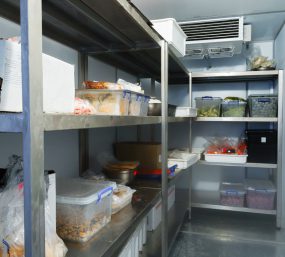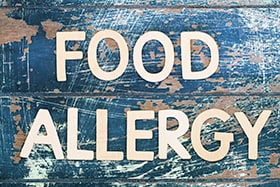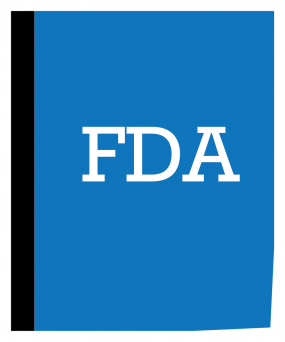Restaurant Food Safety Findings in Plain Language
Read food safety study findings and recommendations on policies and practices to reduce foodborne illness in restaurants, banquet facilities, schools, and other institutions.
According to CDC’s Prevention Status Reports, these areas are especially important in reducing norovirus and other causes of illness in restaurants and other retail food establishments.

Food handling by a sick worker contributes to nearly half of all restaurant-related outbreaks.
Restaurants Can Manage Sick Workers to Help Prevent Outbreaks
Can Restaurant Managers Talk with Sick Workers? 3 Things Restaurant Managers Need To Know

Bare hand contact by a food worker is a contributing factor in about 1 of every 4 restaurant-related outbreaks.
Food Worker Handwashing in Restaurants: Key Takeaways from 4 Food Safety Reports

Restaurants with certified managers had better food safety practices and were less likely to be linked with outbreaks.
Food Safety Differences Between Restaurants Linked and Not Linked to Outbreaks
Kitchen Manager Certification Study and Food Safety
Food Safety Certification and Knowledge
Restaurant Traits Linked with Safer Ground Beef Preparation and Cooking Practices
It is important to learn more about food worker practices. This can help us find ways to reduce risky practices.

We found that almost 1 in 4 restaurants did not label their refrigerated and ready-to-eat foods with dates indicating when the food is no longer safe to eat.
Date Marking and Restaurant Practices: Key Takeaways from Our Research

Many outbreaks of foodborne illness in restaurants were caused by hot food cooled too slowly.
Food Cooling Practice Improvements: Key Takeaways from 3 Food Safety Reports

Learn the key components of a strong food safety culture in restaurants.

Food workers often do not handle food safely. What affects their practices?
Factors Affecting Safe Food Preparation by Food Workers and Managers

Sliced deli meats are at higher risk of Listeria, which causes the third highest number of foodborne illness deaths in the United States each year.
Retail Delis Can Address Gaps in Food Safety: Key Takeaways from 5 Scientific Articles

Studies found posting health department restaurant inspection scores at restaurants and using letter grades for restaurant inspection results are linked with fewer foodborne outbreaks and could lead to safer restaurants.
Germs found in some foods can make you sick if you don’t kill the germs by cooking the food. These germs can also make you sick if they get into other foods that aren’t then cooked.

1 in 3 people with food allergies have had a reaction in a restaurant.

Foodborne illnesses are common, and restaurants are one source of them. But how much do people know about foodborne illness?

States that adopted key provisions from the FDA Food Code had lower rates of foodborne norovirus outbreaks. Learn more about these provisions for restaurants, delis, caterers, and others.
Adoption of Food Code Provisions Is Linked to Lower Rates of Foodborne Norovirus Outbreaks

Investigations of foodborne illness outbreaks are critical to preventing future ones, but they don’t always give enough information.
How Environmental Health Specialists Investigate Outbreaks
Food Safety Differences Between Restaurants Linked and Not Linked to Outbreaks
- EHS-Net publications by Study Topic
- Free food safety resources to help address environmental causes of foodborne illnesses
These studies were conducted by the Environmental Health Specialists Network (EHS-Net). EHS-Net is a federally funded collaboration of federal, state, and local environmental health specialists and epidemiologists working to better understand the environmental causes of foodborne illness. We seek to improve public health and industry policies and practices to reduce foodborne illness in restaurants, banquet facilities, schools, and other institutions.




